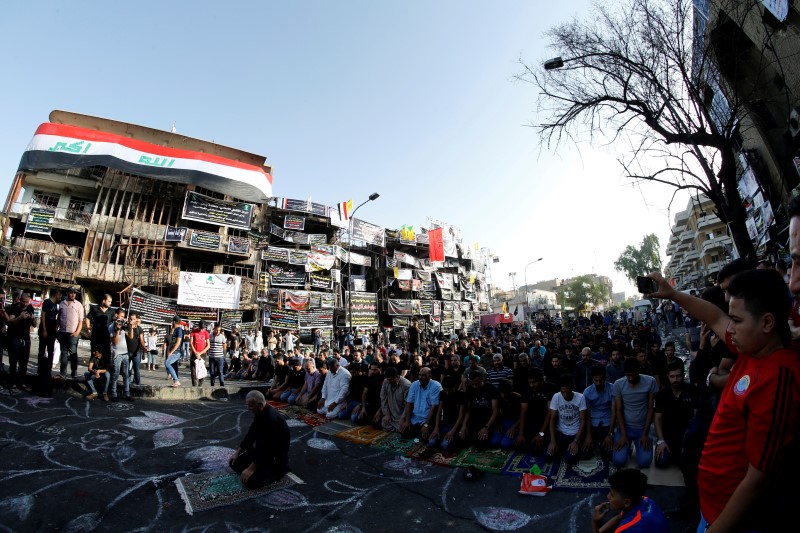BAGHDAD (Reuters) - The United Nations said on Monday Iraqi government efforts to speed up execution of Islamic State militants following a Baghdad bomb attack that killed 324 people could result in innocent people being put to death.
"(It is) all too easy to permit such atrocities to stoke the fires of vengeance. But vengeance is not justice," U.N. High Commissioner for Human Rights Zeid Ra'ad al-Hussien said in a statement.
Prime Minister Haider al-Abadi, facing pressure following the Baghdad suicide bombing last month claimed by Islamic State, ordered an investigation into delays in executing prisoners found guilty of terrorism-related charges.
"Given the weaknesses of the Iraqi justice system, and the current environment in Iraq, I am gravely concerned that innocent people have been and may continue to be convicted and executed, resulting in gross, irreversible miscarriages of justice," Zeid said.
The statement said U.N. monitoring has revealed "a consistent failure to respect due process and fair trial standards, including a reliance on torture to extract confessions."
Efforts to speed up executions emerged after the July 3 bombing, one of the biggest such attacks in Iraq since the U.S.-led invasion in 2003 which toppled Saddam Hussein and sparked years of attacks by Sunni jihadists and Shi'ite Muslim armed groups.
Iraq's Justice Ministry announced days later that 45 death sentences had been carried out since the beginning of the year.
An estimated 1,200 are on death row, including possibly hundreds who have exhausted appeals processes and have received the final decree of the president, the U.N. statement said.

Islamic State has lost at least half its territory in Iraq to an array of U.S.-backed government forces and Iranian-backed Shi'ite militias, but the Baghdad bombing showed it can still strike inside the heart of the capital.